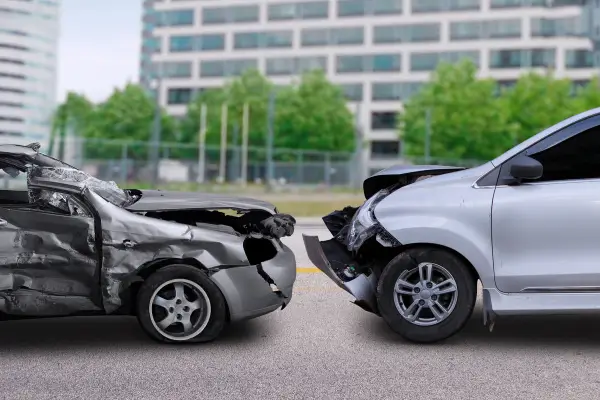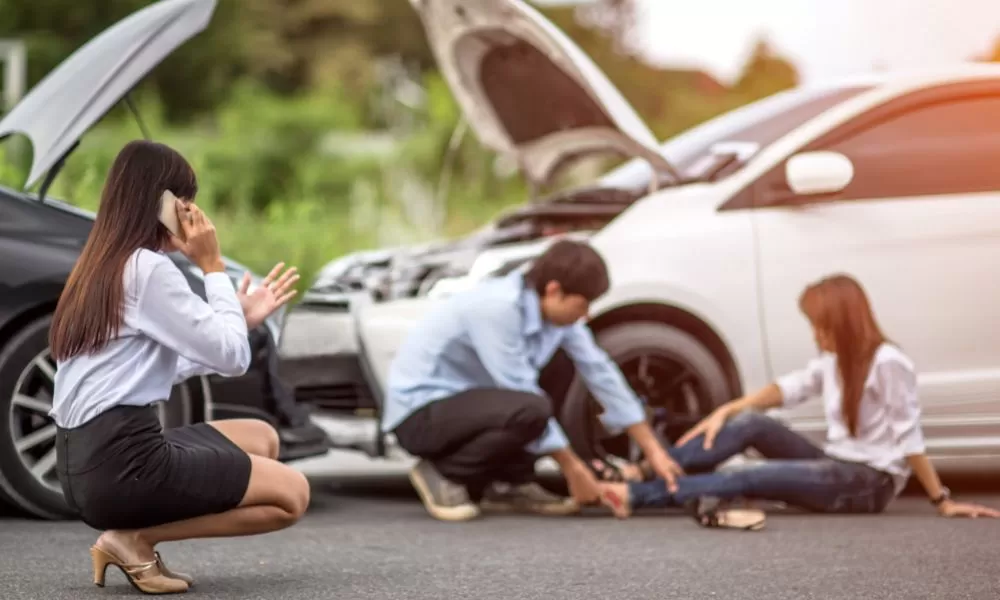Rideshare services like Uber and Lyft have transformed how Munster residents get around, offering convenience at the tap of a button. But with the rise in rideshare usage comes the increased risk of accidents, leaving passengers, drivers, and even pedestrians unsure about their legal options. Navigating the complexities of accident claims involving these companies can feel overwhelming.
Understanding your rights after an Uber or Lyft accident is crucial, especially as laws and insurance policies evolve in 2025. From determining liability to dealing with insurance companies, knowing the right steps can make a significant difference in securing fair compensation. For Munster residents, having clear legal guidance ensures they’re prepared to handle these challenging situations confidently.
Common Causes of Rideshare Accidents in Munster
Rideshare accidents in Munster often occur due to a combination of factors specific to the unique nature of Uber and Lyft operations. Understanding these causes helps identify liability and strengthens accident claims.
- Distracted Driving
Rideshare drivers frequently access their apps for navigation and passenger updates. This increased screen time while driving heightens the risk of collisions. - Driver Fatigue
Long work hours, combined with multiple rides, can lead to exhaustion. Fatigued drivers are slower to react, contributing to accidents. - Traffic Violations
Speeding, running red lights, or failing to yield are common violations among drivers trying to improve earnings through shorter travel times. - Unfamiliar Routes
Operating in new areas or relying too heavily on GPS may cause sudden stops or unsafe maneuvers, increasing the probability of accidents. - Weather and Road Conditions
Adverse weather, such as snow or rain, and poorly maintained roads in Munster can make driving hazardous for rideshare drivers.
Rideshare accident claims in 2025 could require detailed evidence of these factors. Legal professionals, like Munster personal injury lawyers or firms such as Stracci Law Group, may guide residents in addressing these challenges effectively.
Determining Liability in Uber and Lyft Accident Cases
Liability in Uber and Lyft accidents depends on identifying at-fault parties and understanding rideshare-specific policies. Establishing fault often involves examining factors such as driver behavior, vehicle maintenance, and external conditions.
- Drivers’ Actions: Liability may rest with the rideshare driver if negligent actions like distracted driving or speeding caused the accident. For instance, reviewing app usage logs or obtaining dashcam footage helps substantiate claims.
- Other Motorists: Another driver’s recklessness, such as running a red light, can shift responsibility to them. Testimonies, police reports, and traffic camera footage become pivotal in these cases.
- Rideshare Companies: Uber or Lyft could share liability if the driver was active on the app and engaged in a passenger trip when the crash occurred. Insurance policies for rideshare companies typically cover damage during these periods, but their coverage excludes personal activities outside active ride status.
- Third Parties: Non-driver entities, such as municipalities for poor road maintenance or auto manufacturers for defective parts, might also bear liability. Specialized investigations can unearth accountability in such scenarios.
In 2025, changes in rideshare regulations could alter how these liability factors apply to accident claims. Collaborating with experts like Stracci Law Group or Munster Personal Injury Lawyers ensures an in-depth analysis of liability and maximizes claim strength.

Key Evidence to Collect After a Rideshare Accident
Accurate and detailed evidence strengthens claims in Uber and Lyft accident cases. Gathering relevant documentation ensures a comprehensive understanding of the incident and aids in determining liability.
- Police Reports: Obtain official accident reports documenting the scene, statements, and preliminary fault determination.
- Photographs and Videos: Take clear images of vehicle damage, injuries, road conditions, traffic signals, and any relevant surroundings.
- Witness Statements: Collect contact information and statements from bystanders who observed the accident.
- Rideshare App Data: Save trip details such as the driver’s name, license plate, timestamp, and pickup/drop-off locations displayed in the app.
- Medical Records: Document injuries through medical evaluations, treatment records, and bills to establish the extent and cost of damages.
- Insurance Information: Exchange insurance details with the rideshare driver and any other involved parties, including policy numbers.
- Driver’s Status: Confirm whether the driver was active on the app during the accident; it affects liability determinations per Uber and Lyft’s insurance policies.
Residents pursuing claims can benefit from legal assistance. Professionals such as Munster personal injury lawyers or firms like Stracci Law Group ensure proper evidence handling to strengthen cases.
Filing Claims Against Rideshare Companies vs. Drivers
Filing claims against Uber or Lyft differs significantly from pursuing claims against individual drivers. When the rideshare company is targeted, it’s often due to policies that provide insurance coverage when drivers are logged into the app or actively transporting passengers. However, limitations and specific conditions within these policies can complicate claims.
Claims against individual drivers focus on personal liability. If a driver operates without being logged into the app, their personal auto insurance applies rather than the rideshare company’s coverage. In certain cases, drivers may lack sufficient insurance to cover damages.
Identifying the proper entity for a claim requires understanding app status at the time of the accident. If the driver was “”offline,”” the claim involves their personal insurance. If “”online”” but without a passenger, Uber or Lyft’s contingent insurance may apply. When passengers are onboard, higher-tier coverage is generally in effect, protecting both riders and third parties.
Munster personal injury lawyers, like Stracci Law Group, can help residents assess liability and determine whether the rideshare company or the individual driver is at fault. Legal professionals ensure deadlines are met and evidence requirements are satisfied, strengthening the claims process.
The Role of Insurance in Rideshare Accident Compensation
Insurance coverage plays a critical role in compensating victims of Uber and Lyft accidents. Rideshare companies offer specific insurance policies, but their applicability depends on the driver’s app status at the time of the collision.
When a rideshare driver is logged into the app but doesn’t have a passenger, Uber and Lyft typically provide contingent liability coverage. This includes up to $50,000 per injured person, $100,000 total injury coverage per accident, and $25,000 for property damage. However, if a passenger is in the vehicle or en route to a pickup, the coverage significantly increases with up to $1 million for injuries, property damage, and uninsured/underinsured drivers.
Personal auto insurance policies often exclude coverage for accidents occurring during ridesharing activities. This presents challenges for Munster residents, making it crucial to understand which policy applies based on the accident’s circumstances.
If the driver is offline, the claims process involves their personal insurance, as Uber and Lyft’s policies do not apply. Munster personal injury lawyers, such as Stracci Law Group, assist victims in navigating these nuanced scenarios to pursue appropriate compensation. Accurate determination of the driver’s app status is vital when filing a claim.
Insurance companies may dispute liability or coverage limits, so having experienced legal representation ensures a better outcome. Legal professionals can also handle denials from either a driver’s insurer or the rideshare insurer, ensuring all possible avenues are explored to secure compensation.
How Legal Professionals Navigate Complex Rideshare Cases
Legal professionals address Uber and Lyft accident claims by focusing on liability, evidence collection, and insurance disputes. These cases involve nuanced legal frameworks, requiring attorneys to analyze the details of each incident. For Munster residents, accessing experienced support like Munster personal injury lawyers becomes vital when facing rideshare-related legal challenges.
Identifying Liability
Attorneys examine the driver’s app status, crash circumstances, and applicable state or local laws to pinpoint at-fault parties. They analyze whether the driver was logged into the app, transporting a passenger, or driving offline. Rideshare companies, their drivers, or third-party motorists may bear responsibility, depending on the findings.
Strengthening Claims with Evidence
Effective legal representation ensures robust evidence collection to support claims. Lawyers gather digital data like trip records from the app, alongside physical evidence including police reports, witness statements, medical records, and photographs. They authenticate these materials to address legal standards and insurance company scrutiny.
Navigating Rideshare Insurance Policies
Legal professionals assess how Uber and Lyft’s insurance applies to the accident. If coverage disputes arise, such as whether the driver’s activity met the coverage parameters, attorneys advocate for fair compensation. Cases may also involve addressing gaps in the at-fault party’s personal auto insurance.
Engaging Local Legal Expertise
Munster personal injury lawyers, including firms like Stracci Law Group, possess local knowledge and rideshare-specific experience. These professionals interpret evolving 2025 policies and use their expertise to represent accident victims effectively. Engaging specialized legal counsel ensures residents can navigate claims confidently and maximize compensation.
Updates to Rideshare Accident Laws in 2025
As rideshare accident laws evolve in 2025, Munster residents must stay informed about their rights and the legal processes involved. Navigating the complexities of Uber and Lyft accident claims requires a clear understanding of liability, insurance policies, and evidence collection.
With the guidance of experienced legal professionals, victims can build stronger cases and secure fair compensation. Local expertise, particularly from firms like Stracci Law Group, ensures residents are well-prepared to handle the challenges posed by the changing legal landscape.

